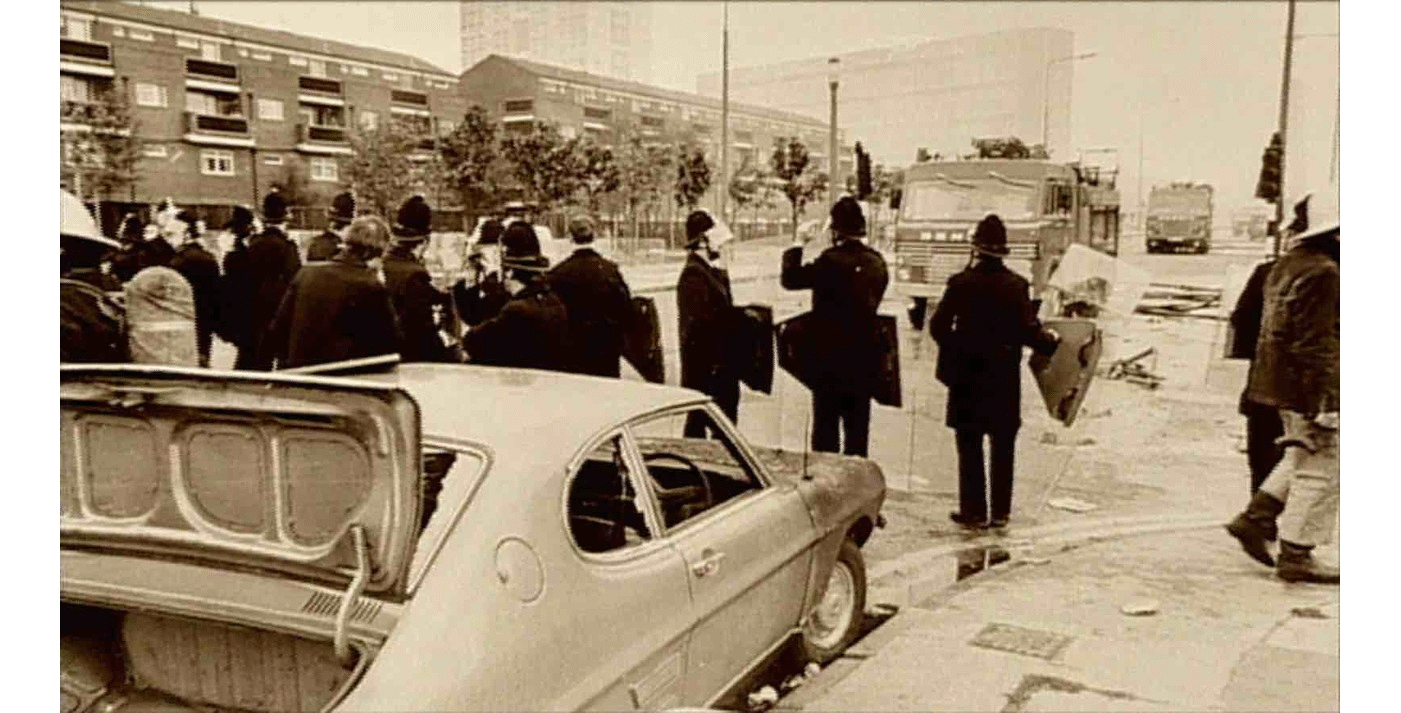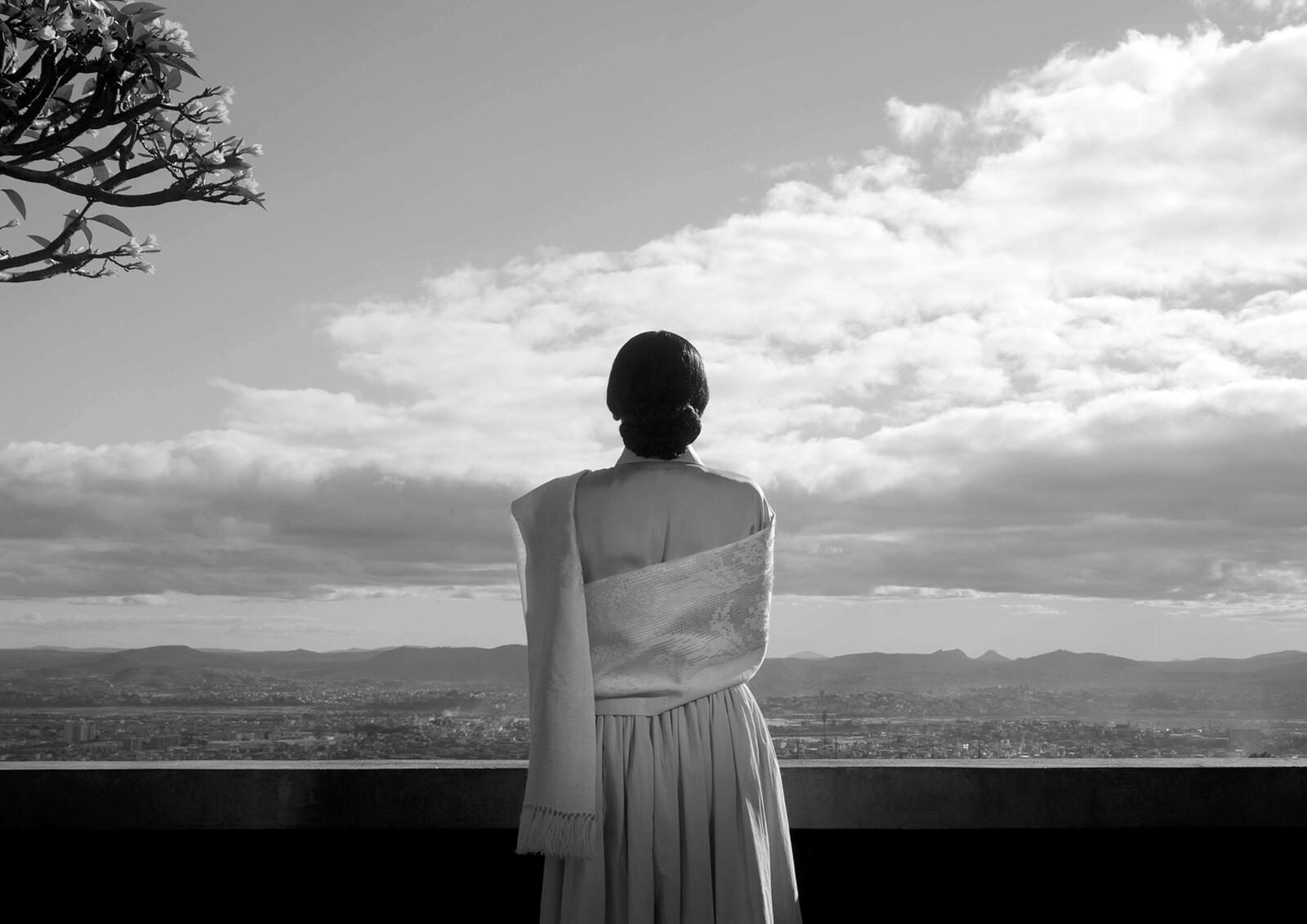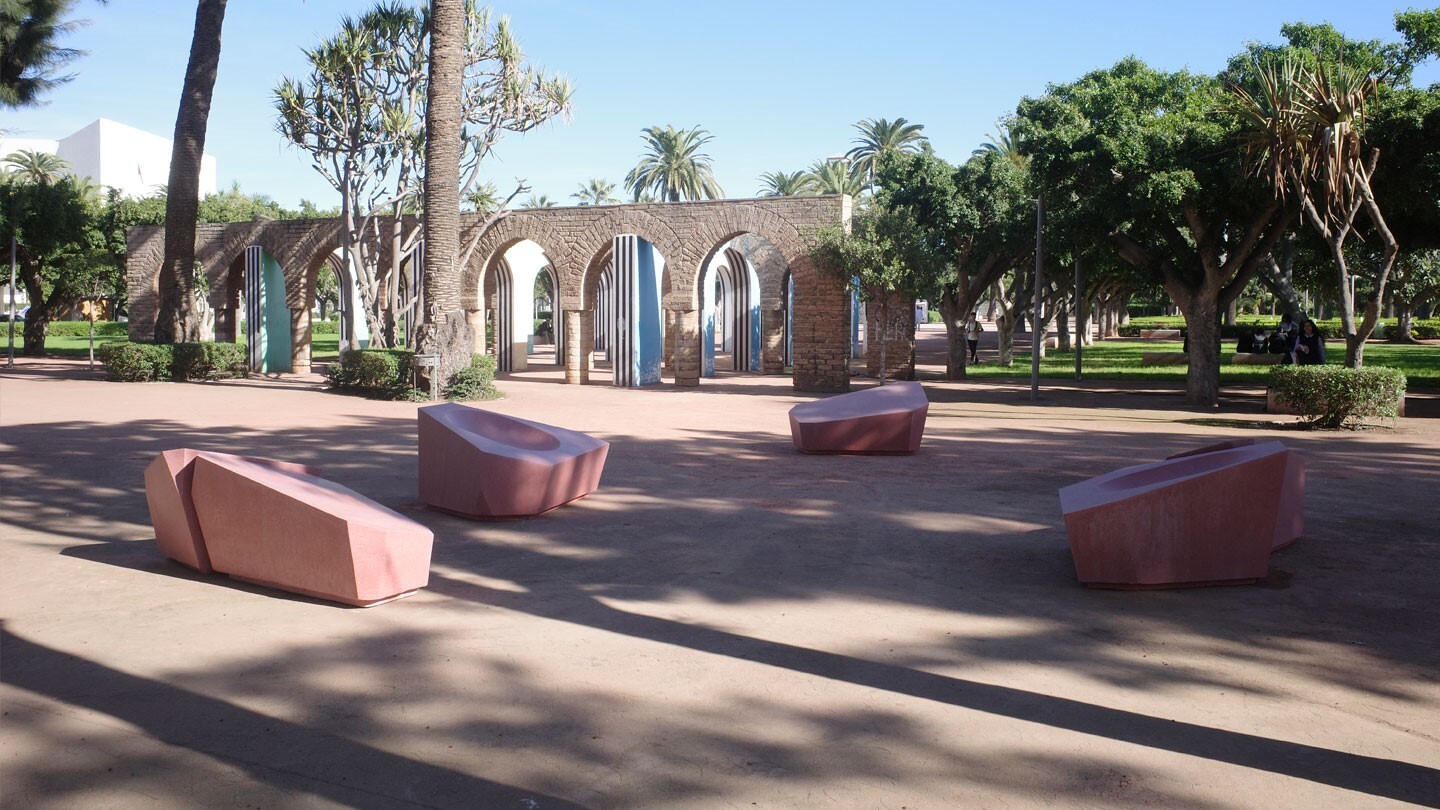January 26–April 1, 2018
Linienstraße 139/140
10115 Berlin
Germany
Hours: Tuesday–Sunday 2–6pm,
Thursday 2–8pm
T +49 30 28449110
ifa-galerie-berlin@ifa.de
With John Akomfrah, Chto Delat, Dilip Gaonkar & Liam Mayes, Gauri Gill, Louis Henderson, Satch Hoyt, Jitish Kallat, Karrabing Film Collective, Glenn Ligon, Daniel Joseph Martinez, Natascha Sadr Haghighian, SAHMAT, Chandraguptha Thenuwara, Ala Younis
Curator: Natasha Ginwala
Assistant Curator: Krisztina Hunya
The exhibition and the public programme in Chapter 4 of Untie to Tie examine structural conditions of the riot through its mutational economy and the anxieties related to the collective agency of the demos. At the same time, social unrest and acts of rioting in several corners of the world are surveyed across colonial modernity and into the present day. The complex reality of state-led communal divides, racial violence, recent genocide, and policing controls is actively explored through the artistic and social practices invited to participate in this project. In times of great disquietude, the group show Riots: Slow Cancellation of the Future wrestles with the rational promise and the irrational delirium of the multitudes.
Riots: Dissent and Spectres, Control and Ruptures
January 26, 6–10pm & January 27, 3–9pm
Acud Macht Neu (Studio), Veteranenstraße 21, 10119 Berlin, Germany
Co-curated by Natasha Ginwala, Gal Kirn, and Niloufar Tajeri
With Vaginal Davis, Zena Edwards, Nadine El-Enany, Dilip Gaonkar, Natasha Ginwala, Dariouche Tehrani, Gal Kirn, Thomas Seibert, Benedict Seymour, Niloufar Tajeri, Chandraguptha Thenuwara, Ala Younis
A certain darkness and negativity remains concealed in the phenomenon of the riot. As a political event and social form, riots have remained a condemned and criminalised structure within progressive and conservative political discourse. How may the revolutionary potential of rioters’ demands be read within the circuits of recent history and contemporary society? And, how are we to understand the transgressive matrices of public rebellion, since riots frequently unfold into larger revolts, insurgencies, and systemic transformation? As a state of exception, riots stand in as proof of failed negotiation, and as that space outside of regulated forms of civic order.
As riots shape new modes of dissent, they tend to undermine the central pillars of modern democracy: respect for order and protection of life, property, and capitalist circulation. Hence, all too often there is no recourse to justice in their wake. The symptomatic response of dominant powers can be detected in the naming of the agents of riots—such as “unruly mob,” “undemocratic crowd,” or “looters.”
As a fear of the masses heightens amid communal divides, this public programme rethinks and reframes riots through a series of lectures, conversations, performances, and screenings. We will ask how riots inhabit and renegotiate the status quo within global metropoles, while also becoming the testing grounds of militarised urbanism targeting vulnerable and racialised groups.
For detailed programme schedule please visit ifa Gallery Berlin or Acud Macht Neu.
Special thanks to KOW, Berlin; Lisson Gallery, London/New York; Roberts Projects, Los Angeles; Saskia Fernando Gallery, Colombo; Smoking Dogs Films; Thomas Dane Gallery, London.
Kindly supported by Goethe-Institut Sri Lanka.












